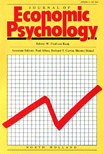
Sociale dilemma’s in reclame
In de jaren negentig ontstond er in Nederland een ‘reclame-wapenwedloop’. Veel bedrijven gingen meer adverteren, terwijl consumenten maar een beperkte aandacht voor commerciële boodschappen hebben. Door middel van onderzoek gingen Ad Pruyn en Rik Riezebos na wat het effect zou zijn als adverteerders zich van dit dilemma bewust worden.
 In this study, which examines the dynamics involved in setting advertising budgets, social dilemma theory was applied in an attempt to understand interdependency problems of advertisers in their investment decisions. In an experiment, a budget decision was made for a company. This was done after a period in which the company’s market shares had either increased, decreased, or remained stable. Subjects were pre-screened with regard to their social value orientation (cooperative vs. competitive). Half of the subjects were informed of the threat of social dilemmas and the possible negative consequences; the other half were not informed.
In this study, which examines the dynamics involved in setting advertising budgets, social dilemma theory was applied in an attempt to understand interdependency problems of advertisers in their investment decisions. In an experiment, a budget decision was made for a company. This was done after a period in which the company’s market shares had either increased, decreased, or remained stable. Subjects were pre-screened with regard to their social value orientation (cooperative vs. competitive). Half of the subjects were informed of the threat of social dilemmas and the possible negative consequences; the other half were not informed.
Budget decisions can be predicted on the basis of subjects’ social value orientations and the awareness of the threat of social dilemmas. Subjects with a relatively strong competitive orientation are more zealous in setting their budgets. However, the awareness variable shows the strongest effects, especially in conditions when subjects experience a declining market share. It was concluded that knowledge about the dynamics of social dilemmas may prevent advertisers from a competitive reaction to loss of share. And may thus avoid them becoming trapped in a competitive (social) dilemma.
![]()
Download PDF van dit artikel.
Referentie(s)
Pruyn, A., Riezebos, R. (2001), Effects of the awareness of social dilemmas on advertising budget-setting: a scenario study. Journal of Economic Psychology, vol.22, no.1, p.43-60.
